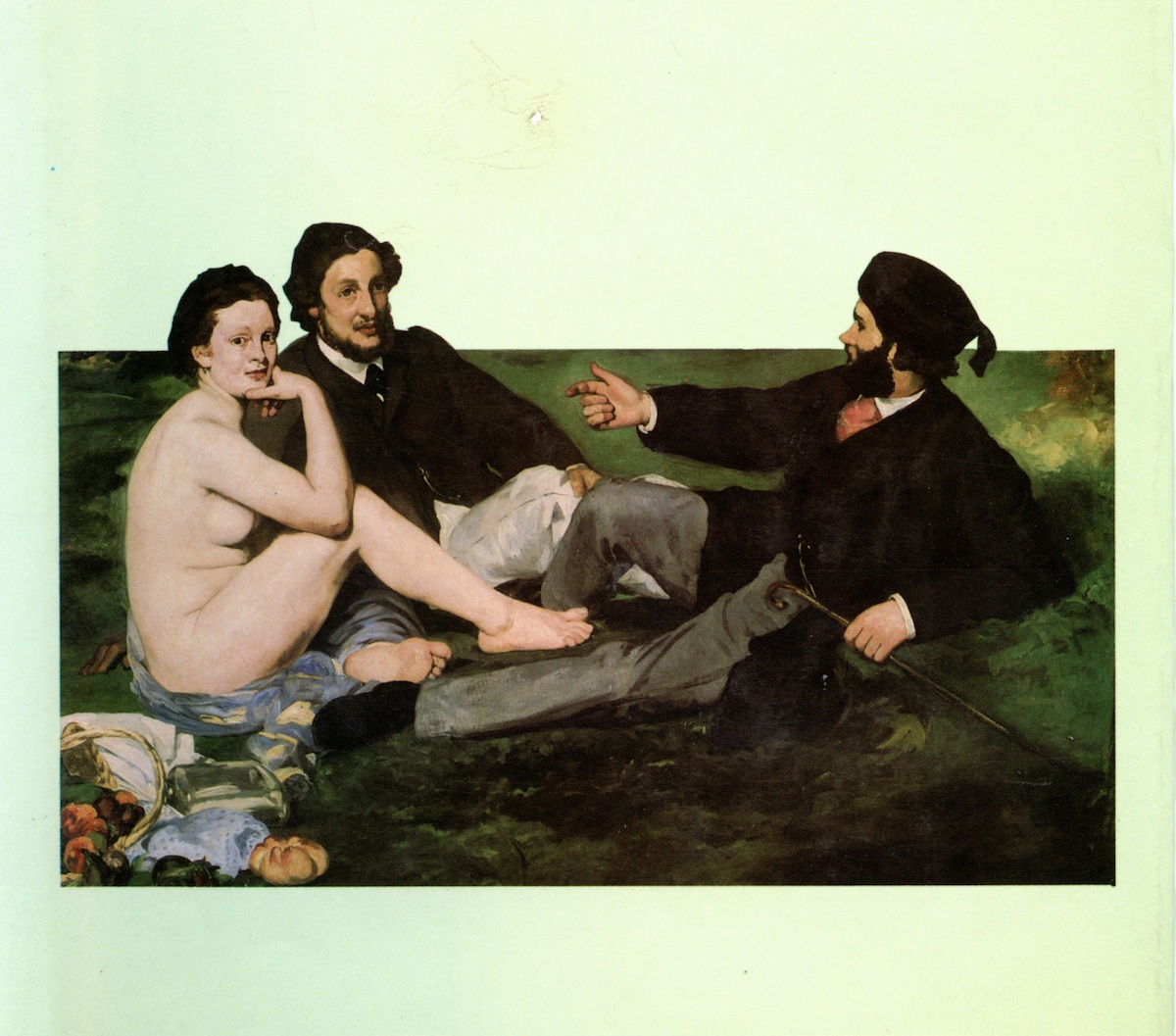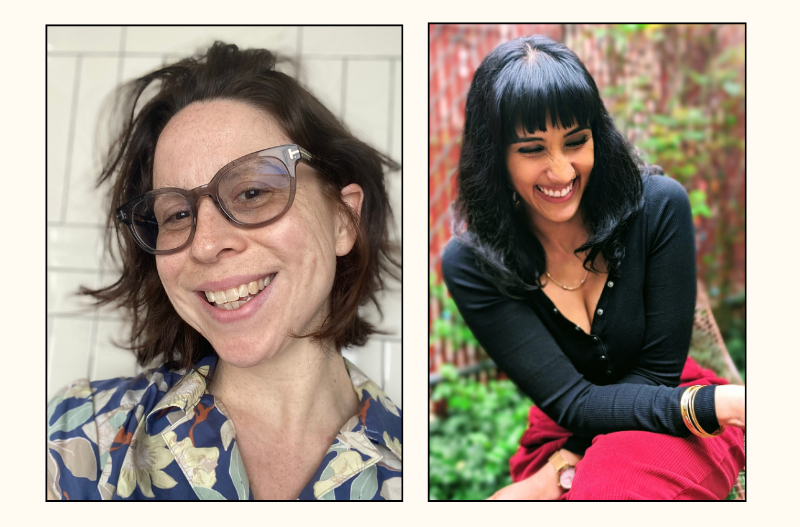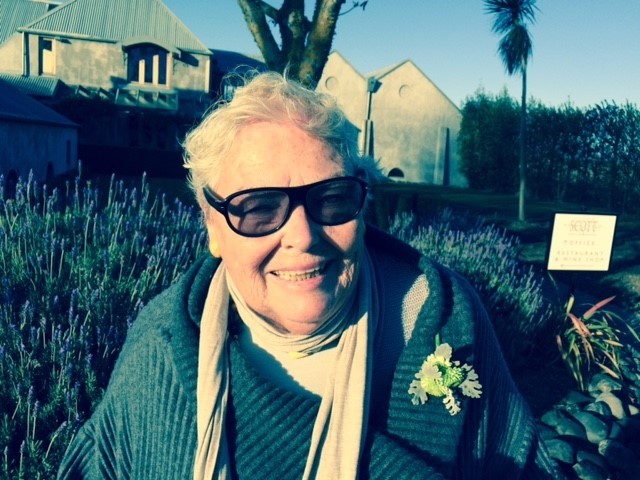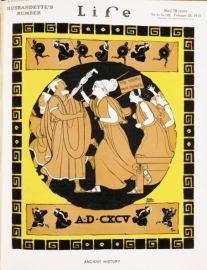Feminists Reclaim Mentorship: a Reading and Celebration
Thu, May 4, 2023
6:00 PM–7:30 PM
The Skylight Room (9100)
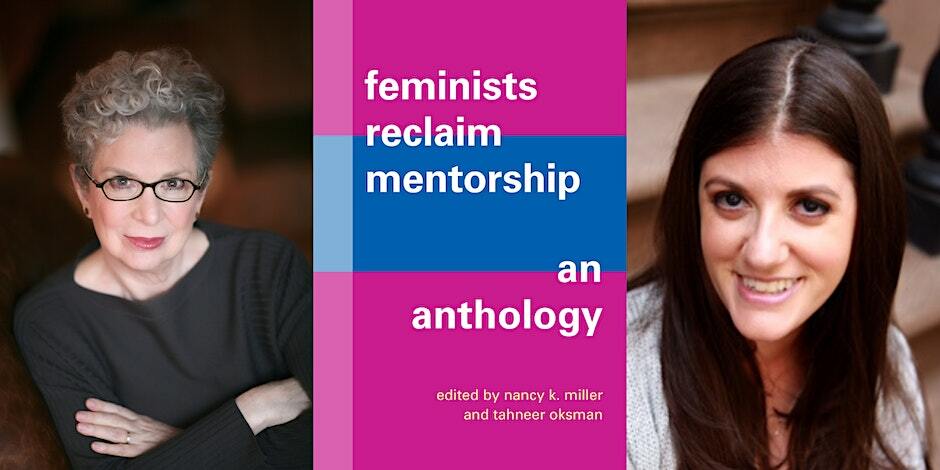
Join us with The Center for the Study of Women and Society to present Nancy K. Miller and Tahneer Oksman to celebrate and discuss the new anthology, Feminists Reclaim Mentorship: a Reading and Celebration. Free and open to all.
Click here to Register for this event.
Mentorship continues to loom large in stories about women’s work and personal lives— sometimes for the better, but often for the worse. If mentors can nurture and support, they can also bitterly disappoint, reproducing the hardships they once suffered and reinforcing the same old hierarchies and inequities. The stories gathered in Feminists Reclaim Mentorship: An Anthology challenge our fundamental assumptions about mentorship, illuminating the obstacles that make it difficult to connect meaningfully and ethically while reimagining the possibilities for reciprocity. Does mentorship require sameness? Might we find more inventive, collaborative ways to bond than the traditional top-down model of mentoring?
Drawing on their experiences in academia, creative writing, publishing, and journalism, the volume’s editors, Nancy K. Miller and Tahneer Oksman, and their twenty-six contributors collectively strive for relationships that acknowledge differences alongside the importance of common bonds. The anthology includes contributions by Rachel Adams, Susan Gubar, Michele Faith Wallace, Hillary Chute, Sharifa Hampton, Jennifer Crewe, Kamy Wicoff, Sarah Glazer, Sarah Burnes, Mikhal Dekel, Michelle Yasmine Valladares, Elizabeth Wood, Aoibheann Sweeney, Joy Ladin, Siri Hustvedt, Ashna Ali, Dána-Ain Davis, Angela Francis, Elizabeth Alsop, Leigh Gilmore, Melissa Coss Aquino, Sarah Chihaya, Melissa Duclos, Sarah Blackwood, Laura Limonic, and Angela Veronica Wong.
This evening will include a reading from several of the anthology’s contributors followed by a conversation involving the audience. The speakers will talk about why, and how, mentorship matters, and with the audience, brainstorm inventive ways of rethinking mentorship structures and approaches, including collective ones.

About the Speakers
Nancy K. Miller—memoirist and feminist critic—is author and editor of more than a dozen books, including the feminist classic anthology The Poetics of Gender and autocritical essays Getting Personal. With Cindi Katz, she coedited and transformed the journal WSQ: Women’s Studies Quarterly, which won the CELJ award in 2007 for Significant Editorial Achievement, and with Victoria Rosner, she is co-editor of the Gender and Culture series at Columbia University Press, founded by Heilbrun and Miller in 1983. Her most recent book is the memoir My Brilliant Friends: Our Lives in Feminism. She teaches life writing and cultural criticism at the Graduate Center, City University of New York, where she is distinguished professor of English and comparative literature. Having enjoyed the support and protection of feminist mentorship throughout her career, she has gone on to mentor several generations of students and writers, including her coeditor for this volume, who was once her doctoral advisee.
Tahneer Oksman, scholar, teacher, and writer, is author of “How Come Boys Get to Keep Their Noses?” Women and Jewish American Identity in Contemporary Graphic Memoirs, and coeditor of The Comics of Julie Doucet and Gabrielle Bell: A Place Inside Yourself, winner of the Comics Studies Society Edited Book Prize for 2019. Her cultural criticism has appeared in The Believer, The Comics Journal, The Forward, The Guardian, Los Angeles Review of Books, Public Books, and Women’s Review of Books, and her academic writing can be found in journals and collections including A/B: Auto/Biography Studies, Keywords for Comics Studies, Life Writing, Literature and Medicine, Pathographics, Shofar, Studies in American Jewish Literature, Visualizing Jewish Narrative, and Women’s Studies Quarterly, among others. She is associate professor in the Department of Writing, Literature, and Language at Marymount Manhattan College. Her interest in mentorship comes from experiencing the benefits and pleasures of being mentored, including by her coeditor for this volume, and she has continued the practice alongside students and colleagues.
Related Events
Event
Eve Kosofsky Sedgwick’s “Between Men” at Thirty: Queer Studies Then and Now
